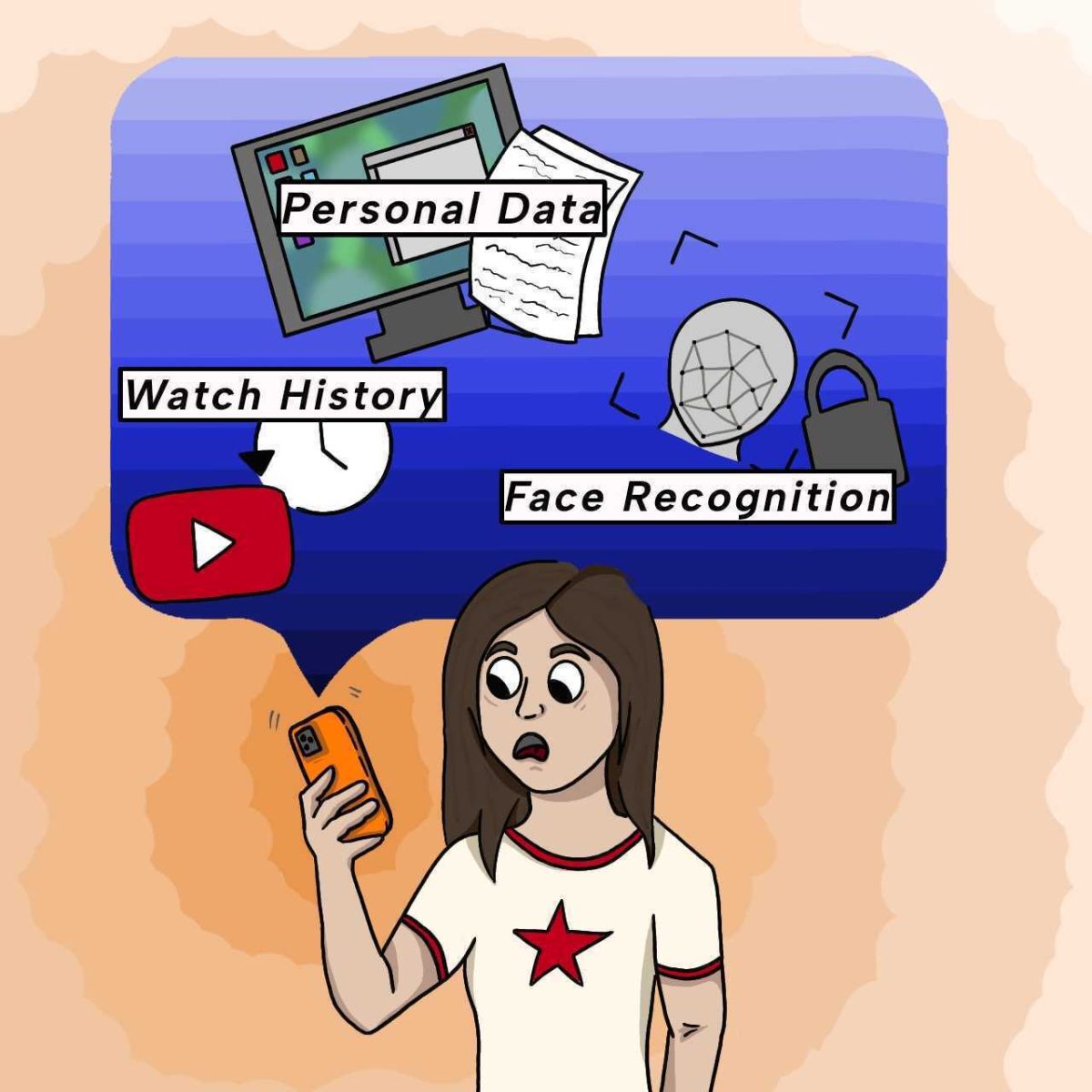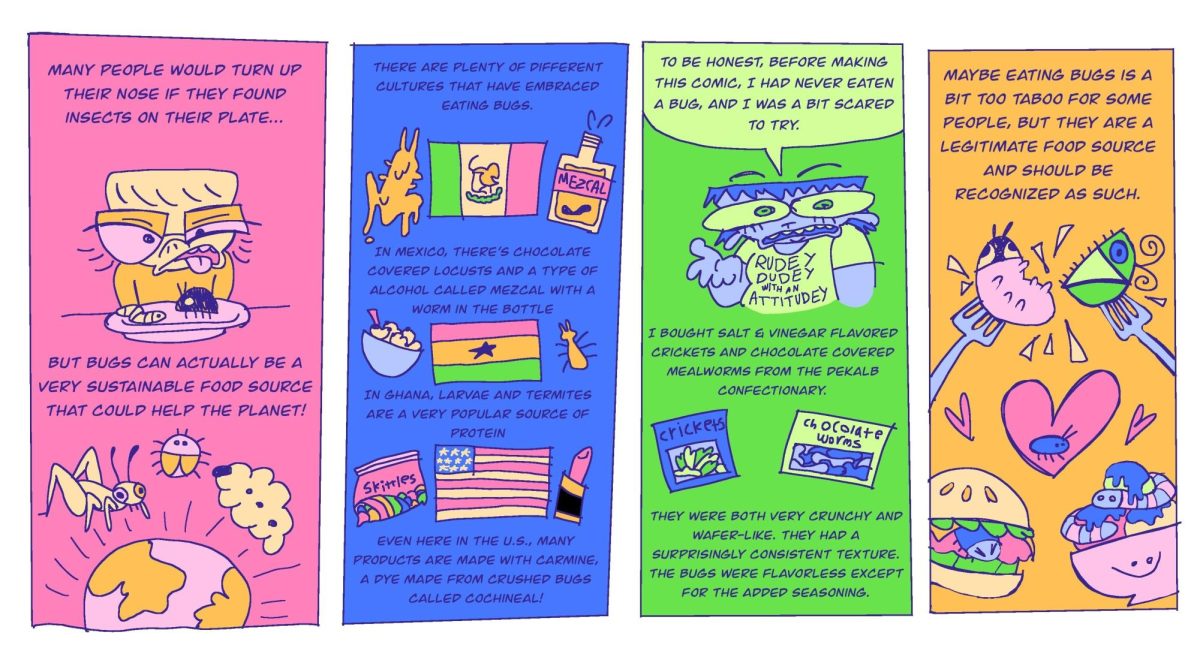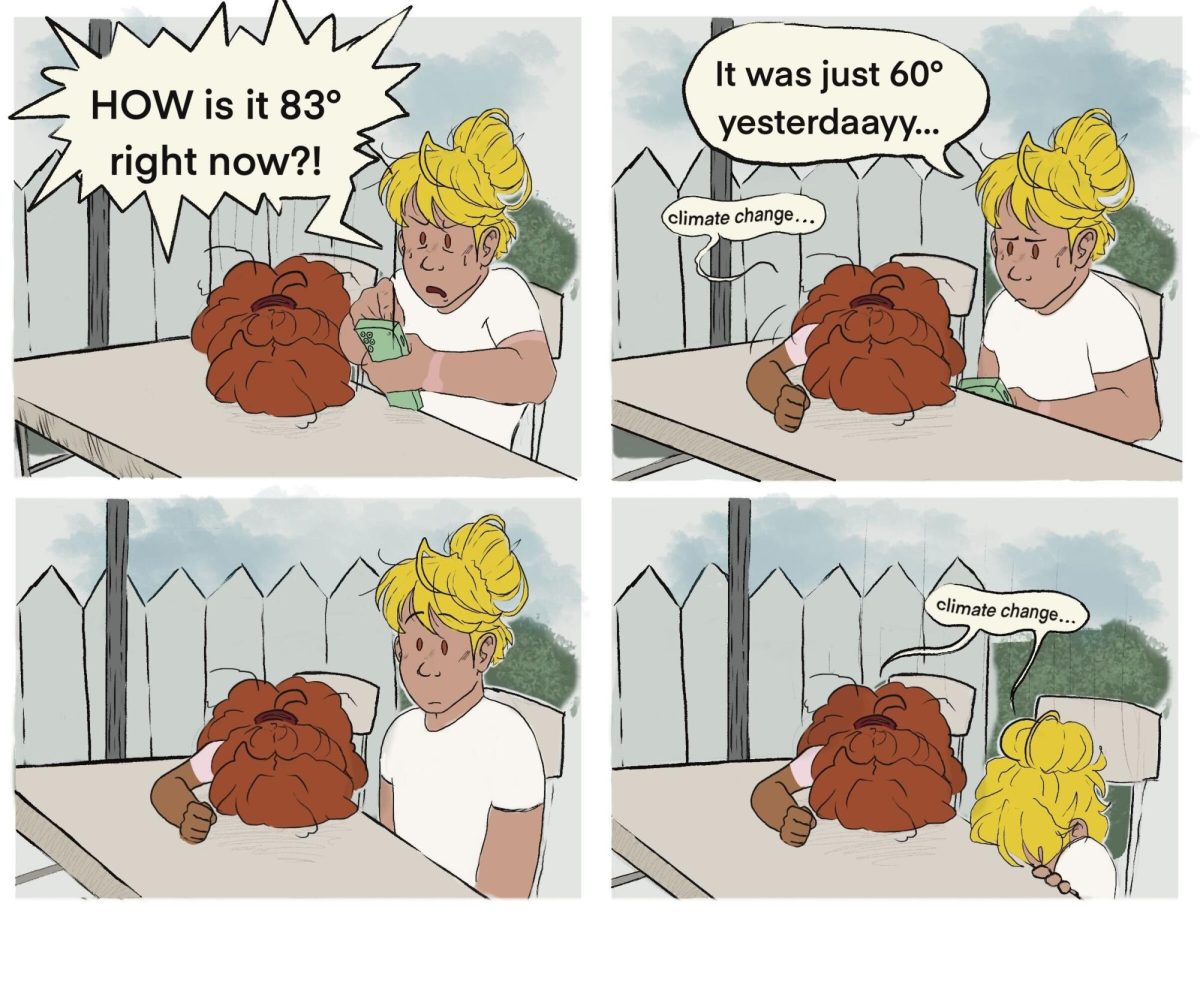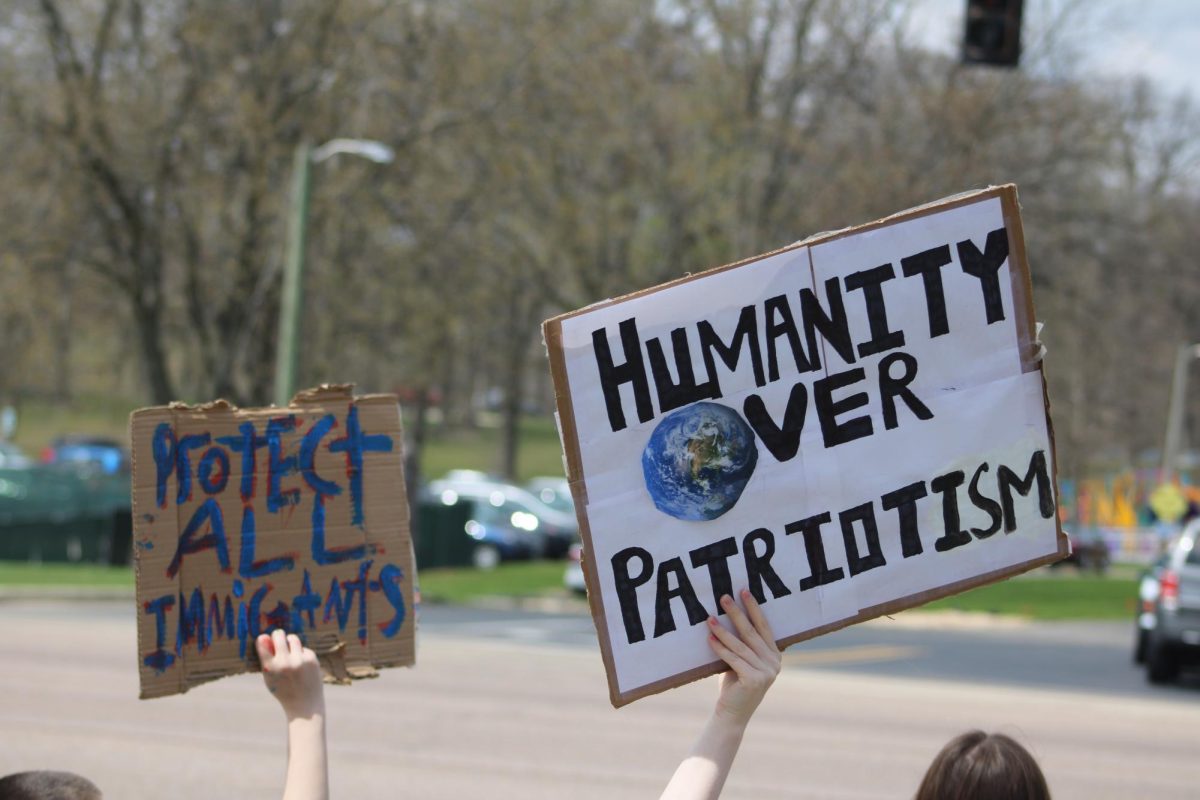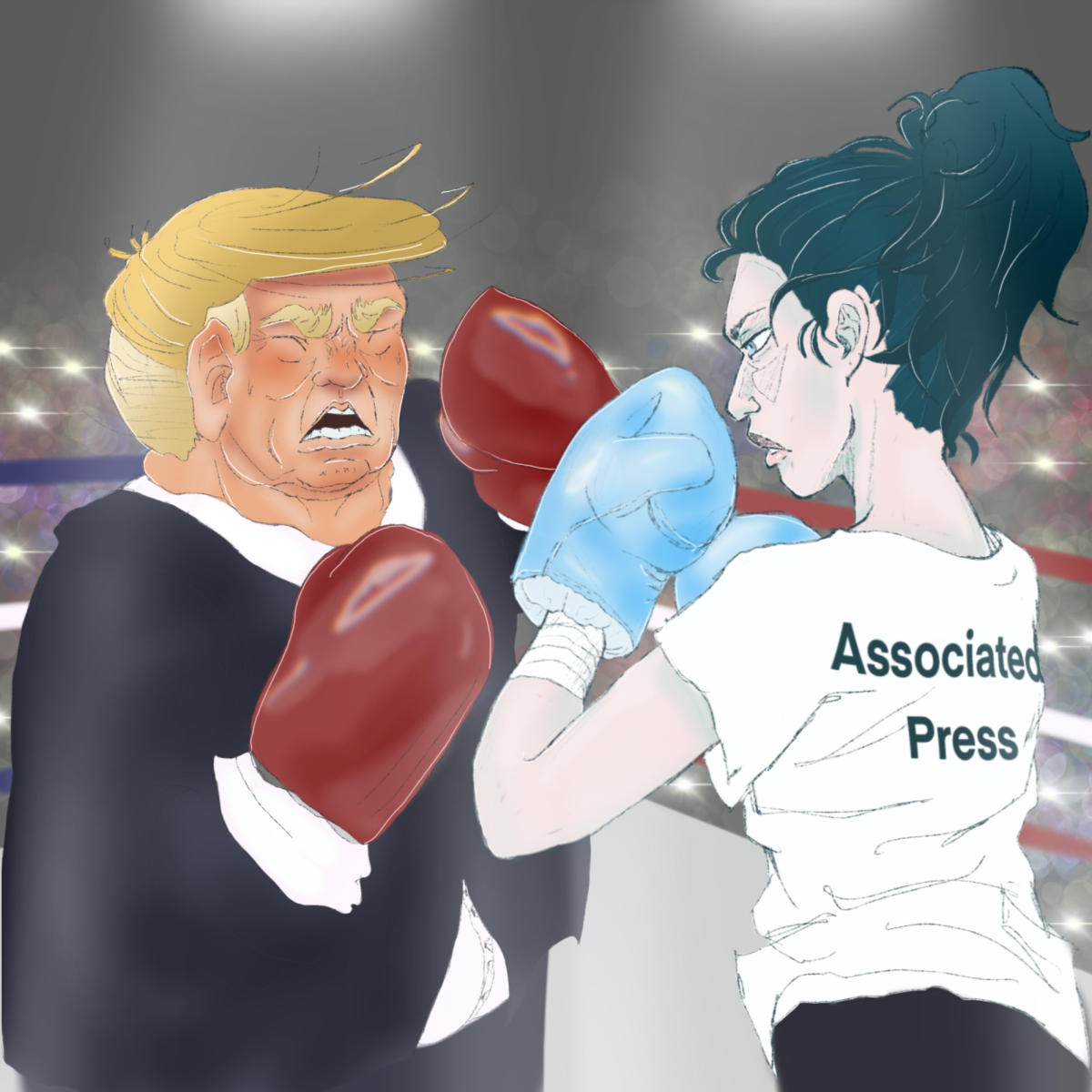The internet is a vast place. It’s estimated that people upload 463 billion gigabytes worth of data every single day to the internet. To put that number into perspective, that would be 154.33 trillion photos uploaded to Instagram every day if every photo is an average of three megabytes.
The question is, how do we sift through it all and protect people from seeing something they shouldn’t?
A third-party, international organization should be the one to scour the internet around the clock to regulate content and protect users.
Most governments have private social media corporations to moderate what is right and wrong, leaving little oversight for social media promoting extremist ideas. For instance, X experienced an increase in general hate speech by around 50% after Elon Musk’s purchase of the platform.
In addition, Truth Social saw President Donald Trump calling for the destruction of American cities. These posts can be dangerous for students as they encourage people to attack marginalized groups in the online and public space.
In contrast, the United Kingdom passed a law called the Online Safety Act 2023. While intended to protect children online, it also restricts access to information for users and requires users to submit Identity Documentation (IDs) to view what the law defines as “adult content.”
One issue with the Online Safety Act is it struggles to define journalism, as it requires journalism companies to have a headquarters in the United Kingdom, otherwise they aren’t considered for the journalism exemption. This means that websites of journalistic organizations are not required to demand ID when discussing or showing adult content. In turn, this limits independent journalists.
A notable independent journalist is Harry Jackson, a British travel vlogger known as wehatethecold online. Jackson became an accidental independent journalist when going to Nepal to create travel vlogs but arrived at the start of the nationwide uprising in early September and has been documenting his travels since.
Under the United Kingdom’s Online Safety Act, Jackson’s videos, consisting of on-the-ground coverage, could be subjected to age verification which would restrict people’s access to see protests unfiltered in almost real time.
Furthermore, since 54% of adults get their news from social media, any law that could define and restrict how journalism is defined would limit the reach and accessibility of the on-the-ground news.
Greg Elinson, an associate professor of law at NIU, believes that a U.S. version of the Online Safety Act would spark debates across the country about how to tailor and define terms.
“We generally haven’t gone in the direction of defining what journalism is out of concern that there’s just no way to write that definition in a way that actually captures the kinds of people you want to capture,” Elinson said.
A law that creates definitions on what journalism is could begin government censorship of the news by using age verification to restrict what certain people can read.
Forcing age verification onto private corporations, like the United Kingdom is doing with the Online Safety Act, can lead to major identity leaks such as the Tea Dating Advice hack earlier this year or the Ashley Madison data breach in 2015, as there is no established legal standard for the retention of IDs.
Both Tea Dating Advice and Ashley Madison were dating apps requiring users to input their state-issued IDs to verify users’ age. The apps experienced massive breaches due to explorations in cybersecurity, which released the names, addresses, phone numbers and emails of millions of users. This led to increases of harassment in person and online and ruined relationships.
The IDs and data websites would have to collect if a law similar to the Online Safety Act were to be passed in the U.S. would leave students at heightened risk of data breaches. Cyber criminals could commit identity fraud and ruin credit scores
Elinson said while it may be possible for a similar law to be passed in the U.S, nationwide, it would come with two issues. The first would be categorizing content-neutral regulations and what falls under content-based regulations.
“(Content-neutral is) where you don’t have to know anything about what’s actually being communicated,” said Elinson. “(Content-based is) you have to know something about the content of the speech.”
Examples of content-neutral material would be crimes and criminal activity, while content-based material would be dogwhistles or encodes messages so that only certain people with a cipher key would understand.
States such as Texas, Utah, Louisiana and Arkansas have all passed content-neutral laws similar to the Online Safety Act, which require ID verifications to create social media accounts and visit pornographic sites.
The other issue would be that the bill would have to be narrowly tailored to achieve the objective according to Elinson. While a possible nationwide law could be tailored, the mass data categorization and collection by the United Kingdom feels very similar to the data collection seen from the Uniting and Strengthening America by Providing Appropriate Tools Required To Intercept And Obstruct Terrorism (USA PATRIOT) Act of 2001, shortened to the Patriot Act.
Section 215 of the Patriot Act allowed the National Security Agency (NSA) to mass collect all physical forms of data on citizens while Section 1861 allowed the NSA to demand business records from companies, which included cellular service providers turning over text messages, call transcripts and search histories of its customers.
Both of these forms of data collection have sparked debate across the country. If brought back in a law similar to the Online Safety Act, students would have all their communications and searches scanned by the government which could lead to dossiers being created on them and especially on members of rival political parties.
Between 1970 and 1980s, the Los Angeles Police Department (LAPD) had illegally created dossiers on its citizens by infiltrating left-wing political organizations, activist organizations and police watchdog organizations and spying on them despite having no warrants to do so and having no oversight on procedures.
The LAPD also kept a portion of their dossiers in the homes of some officers and those officers leaked portions of those dossiers to right wing organizations, which actively put people in danger.
With the titanic size of information uploaded onto the internet daily, there has to be some way to moderate it. But while most governments intend to protect their citizens, the rules of moderation should not be left solely to a few people and the job of enforcement shouldn’t be left in the hands of corporations.


